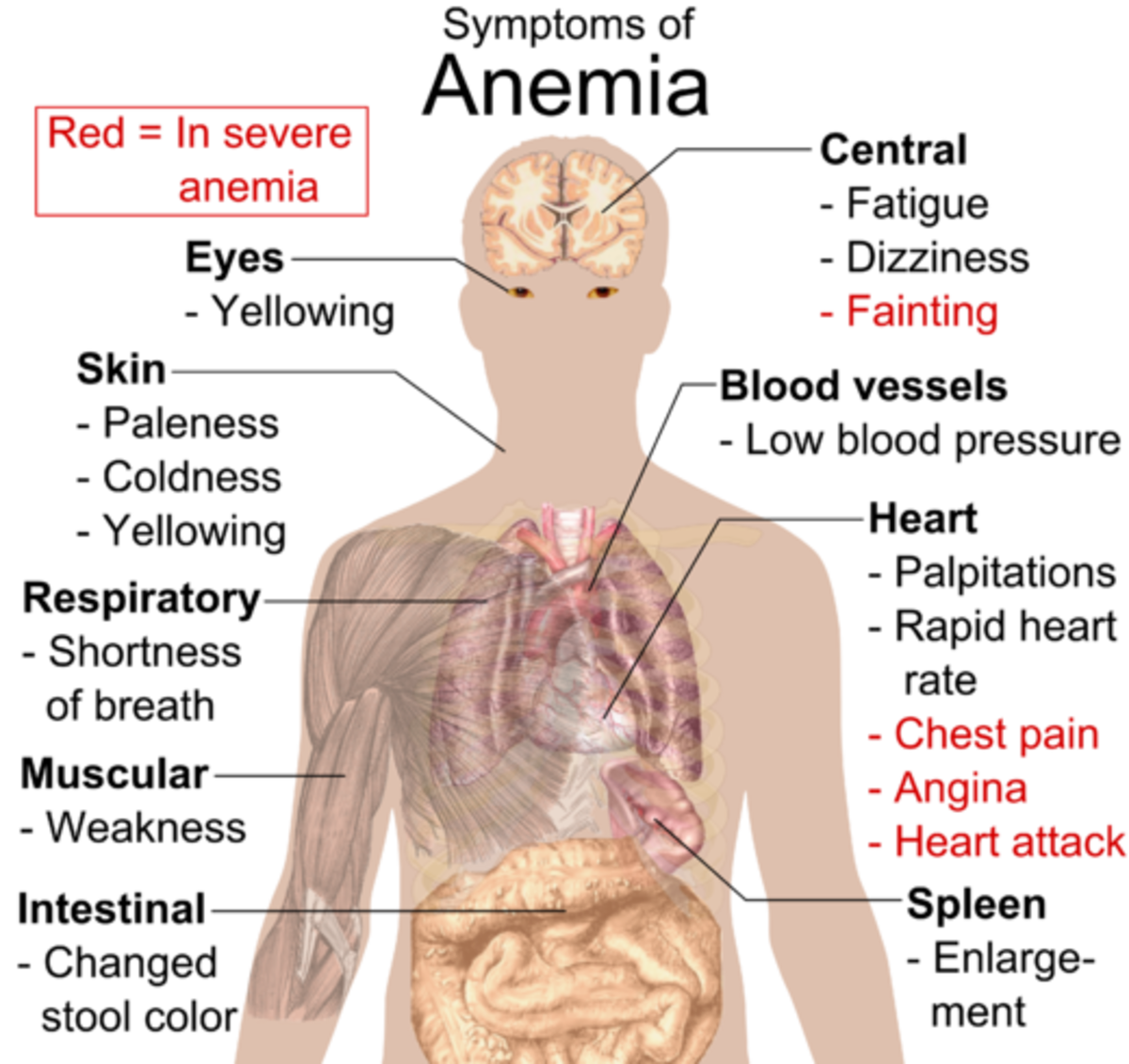Thrombophilia: Factor V Leiden, Lupus Anticoagulant, Antiphospholipid Syndrome (APS) And Other Clotting Conditions
Introduction
Many people have heard of hemophilia but not many people have heard of thrombophilia. Hemophilia is a condition where a person may have excessive bleeding. Thrombophilia is the opposite; it is a disease in which a person's blood may clot easily and often. Thrombophilia can cause a number of serious health problems including deep vein thrombosis, stroke, heart attack, pulmonary embolism, and death.
A brief video showing the factors involved in clotting
What are the common types of thrombophilia?
Thrombophilia can be either genetic or acquired. Acquired thrombophilia can occur due to liver disease, liver transplant, lupus anticoagulant, and antiphospholipid antibody (anticardiolipin) syndrome. In addition to thrombophilia, other factors can increase clotting. These factors can include pregnancy, bed rest, medication, surgery, and heart attack. Genetic thrombophilia is passed down from parents to offspring. There are a number of these conditions.
Genetic and acquired thrombophilia
Suggested links
- Lifeblood - The Thrombosis Charity - Information on the Different Thrombophilias
- Hypercoagulable Disorders And Lab Tests
- Antiphospholipid Syndrome: Overview - eMedicine Rheumatology
- Antithrombin Deficiency: Overview - eMedicine Hematology
- Protein S Deficiency: Overview - eMedicine Hematology
- Protein C Deficiency: Overview - eMedicine Hematology
- APS Foundation of America, Inc.
- Blood Clot Awareness Prevention, Treatment and Diagnosis
- ClotCare Online Resource
- The Thrombophilias and Pregnancy - March of Dimes
- Thrombophilia Awareness Project
- Thrombophilia: Bleeding and Clotting Disorders: Merck Manual Home Edition
APS Awareness
Factor V Leiden (APC resistance, FVL)
Factor V Leiden is a genetic condition that can cause an increased risk of blood clots and pregnancy problems. In FVL, protein C tends to have problems deactivating the factor V protein. The best test for FVL is the genetic blood test. It will check for genes that can cause FVL. It will determine if there are zero, one, or two copies of the faulty gene. This test can be done while on anticoagulation therapy.
Prothrombin 20210
This is a genetic condition that causes the body produce too much of the prothrombinprotein. This is also known as a prothrombin mutation. People can inherit 1 or 2 copies of the mutation. The 1 copy version (heterozygous) is the most common. A genetic blood test can be done to detect this condition and determine if it is heterozygous or homozygous.
Protein C Deficiency
Protein C prevents coagulation. There are a number of inherited and acquired reasons to have low levels of protein C. A blood test will be done to measure protein C in the blood. This test can not be done while the individual is on warfarin/Coumadin as this drug affects protein C levels. There are a number of other factors that can influence protein C. For this reason, protein C blood levels should be measured and analyzed in repeated tests.
Protein S Deficiency
Protein S assists protein C in preventing clots. There are both genetic and acquired reasons for low protein S. A blood test will be done to measure protein S in the blood. This test can not be done while the individual is on warfarin/Coumadin as this drug affects protein S levels. There are a number of other factors that can influence protein S. For this reason, protein S blood levels should be measured and analyzed in repeated tests.
Antithrombin Deficiency
Antithrombin is a molecule that is very important in anticoagulation in mammals. There are both genetic and acquired reasons for antithrombin deficiency. Without enough antithrombin there is increased clotting. There are a large number of blood tests that will be done to determine this condition. Heparins as well as oral anticoagulation (coumadin/warfarin) can affect the numbers on the tests. It is best to be tested when not on anticoaugulation therapy.
Antiphospholipid Syndrome (APS)
APS is an autoimmune condition. The body's immune system attacks various components in the blood. People with this condition have increased clotting. A unique marker of this condition is presence of antiphospholipid (aPL) antibodies or abnormalities in phospholipid-dependent tests of coagulation. Testing will likely include tests for anticardiolipin antibodies, lupus anticoagulant, and antibodies to b2-glycoprotein.
MTHFR
MTHFR is caused by a mutation in a gene that controls the production of MTHFR. MTHFR - (Methylene-tetra-hydro-folate-reductase) is an enzyme found in the cells of our body. It is needed to metabolize (break down) homocysteine, an amino acid found in the proteins you eat. Elevated homocysteine levels are a risk factor for blood clots. If you have MTHRF but do not have elevated homocysteine levels, you are not at risk for a clot. If you have elevated homocysteine levels, it can be controlled with folic acid supplementation. MTHFR can be diagnosed through a genetic test for the gene that causes MTHFR or through a blood test that measures homocysteine levels.










